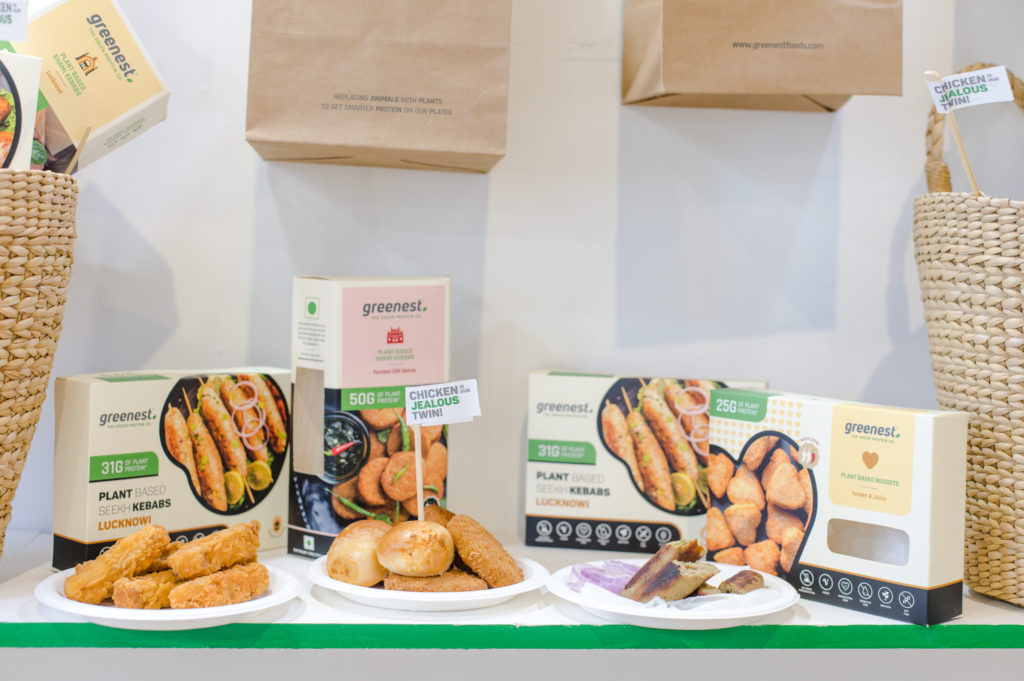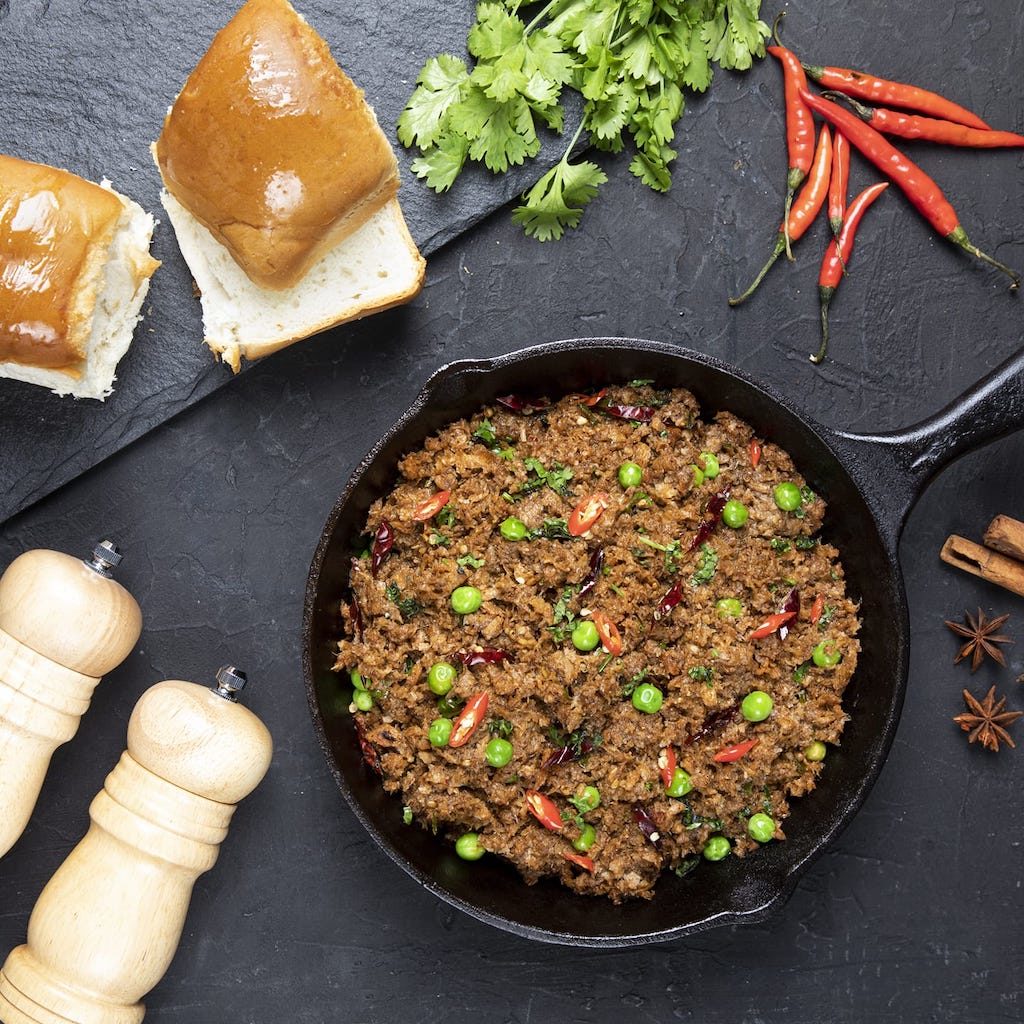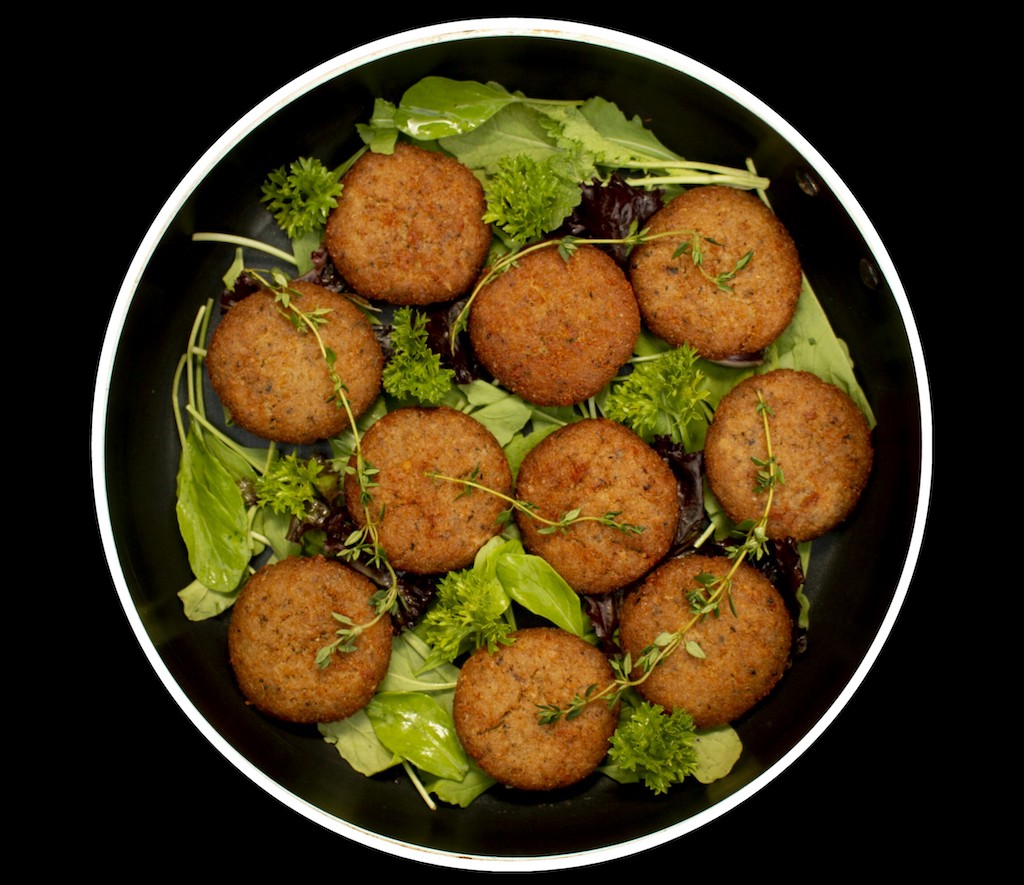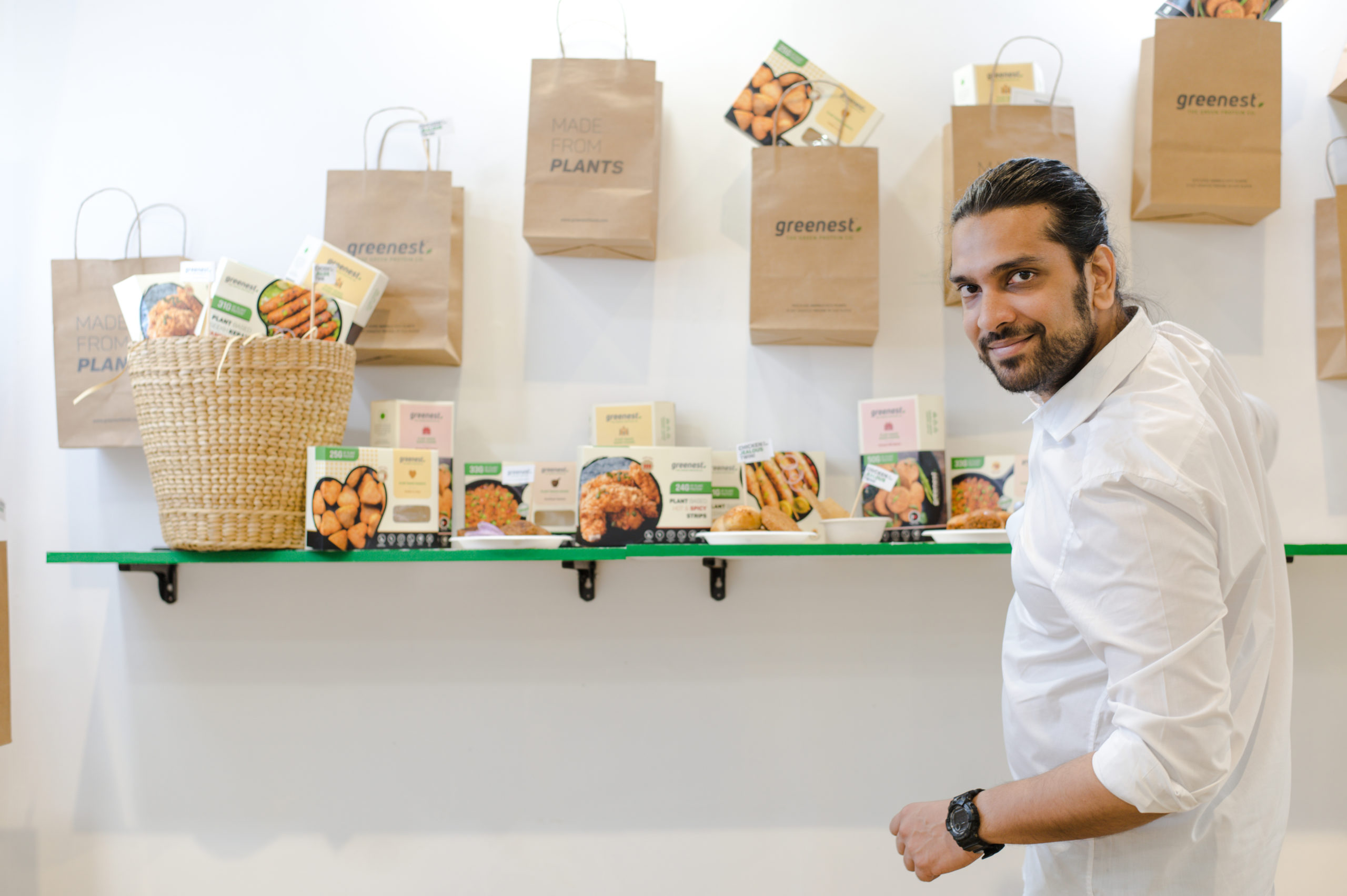4 Mins Read
Upstablish Food Technologies has announced a new range of plant-based meats from its Greenest brand. One of India’s leading plant-based startups, the brand has previously made noise in the space with its “hyper-realistic” shami kebabs. Now, it is adding a number of dishes including kebabs, samosas and keema that cater to regional Indian tastes and take inspiration from western snacks. All are being released for food service use and retail distribution.
Other confirmed dishes include nuggets, grilled burger patties and meat strips. The range was debuted at the AAHAR, Asia’s largest food and hospitality expo, held in April.

Greenest making inroads towards its goal
Last year, Greenest revealed that it has aspirations of becoming India’s largest plant-based meat brand. The new range follows a year of expanding the retail footprint, reaching new cities and finding a presence on key e-commerce platforms.
Ultimately, Greenest wants to offer the “largest and most comprehensive portfolio of plant-based meats in India”. A focus on high protein, sustainable and affordable products is being maintained, with new developments reducing reliance on soy and gluten.
“We have innovated our product portfolio in the past six months and continue to read the pulse of the Indian audiences closely,” Gaurav Sharma, CEO at Greenest said in a statement.
“More than 50% of our range is now soy-free and gluten-free, taste is highly attuned to Indian palate preferences, and we continue to work on interesting dishes with an objective to cover a wider range of consumption occasions. The idea is to make plant-based alternatives tastier, more affordable, and widely available to facilitate faster adoption by consumers.”

India as a key plant-based market
Kerry, one of the world’s largest taste and nutrition experts, identified India as a significant driver for the plant-based sector back in December. The country was highlighted as showing openness and demand for meat alternatives. 41 percent of the population was found to already eat six or more types of plant protein. The alternative meat market was valued at $171 million, with expectations to grow by 8.5 percent CAGR by 2025.
India has one of the largest populations of malnourished people, currently estimated at around 195 million. Poverty and the effects of climate change on agriculture, both arable and animal, have impacted access to nourishing staples. Domestically produced plant-based food is seen as a potential food insecurity solution.
Furthermore, 63 percent of India’s total greenhouse gas emissions from agriculture are attributed to livestock farming so there is justification to switch to less resource-heavy production and consumption. Domestic food tech companies are seeing the potential in developing increasingly nutritious and affordable alternatives to conventional meat and dairy foods.

Greenest reaching consumers everywhere
The decision to unveil the latest Greenest range at AAHAR was motivated by the opportunity to put products in front of key buyers within the Indian food industry.
“We have received an overwhelming response given the great taste and exciting range. There is a massive uptick in interest for plant-based alternatives from retail consumers, restauranters and hoteliers,” Sharma said in a statement. “Greenest has taken the lead in the burgeoning B2B market for plant-based alternatives. Currently, our restaurant partnerships cover around 200 stores and this will increase to 500 by September 2022.”
The new range is currently available to foodservice partners. Retail launch is cited for next month.

India’s biggest plant-based players
A number of domestic startups are looking to secure a piece of the plant-based pie. ITC, one of India’s largest conglomerates, revealed at the start of the year that it is making moves to enter the sector. Initial product launches were cited to be burger patties and nuggets, with the Good Food Institute India advising about the strategy.
BVeg Foods recently announced it is working with Swiss machinery manufacturer Bühler to create plant-based meat indistinguishable from the real thing. Using high moisture extrusion technology, a first for India, BVeg hopes to develop whole muscle meat analogues to cater to a wider audience.
Non-domestic companies are seeing the potential of India as well. Last month, California’s alternative dairy giant Perfect Day confirmed it has acquired three manufacturing plants in Gujarat and Tamil Nadu. No plans have been released for the sites.
All photos by Greenest.





